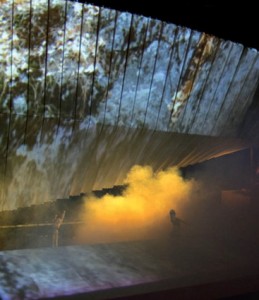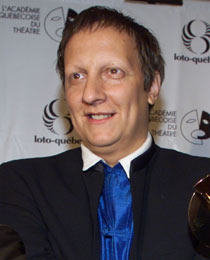Culture Vulture: Back at the Mall with Das Rheingold — What would Wagner think?
The possibilities of the internet as well as the MET in HD pull Wagner’s dream of a total work of art into the context of 21st-century technology and culture, making possible new cross-cultural and cross-disciplinary references as never before. I think he would have loved it.
By Helen Epstein.
When I was a musicology student in Israel in the 1960s, there were no public performances of Wagner’s music—a production of the Ring Cycle would have been unthinkable—but Wagner’s music was studied at conservatories and universities such as my own Hebrew University. As a music student, I was a centrist both on the politics of performing Wagner and the music itself
Neither swept me away. There were Viennese (Jewish) members of my extended Central European family who were authentic Wagner fanatics, but they had been initiated into the mystique well before the Second World War while I, on the other hand, was stuck with the automatic cultural linkage of Nazism and Wagner.
What interested me most about the composer apart from identifying and tracking leitmotifs throughout a score was his concept of Gesammtkunstwerk. Wagner had thought a lot about music and drama, as well as the national styles—Italian and French—that had dominated the operatic form until his time. He wanted opera to be intelligent and intelligible as well as profoundly moving, mythic, and musical. He elaborated on the term Gesammtkunstwerk in 1851 as he was finishing his book Opera and Drama, outlining an aesthetic in which all the arts would be integrated into one supreme art form as he believed had been the case in Greek tragedy.
What would he think, I wondered as I sat in the Burlington AMC’s Theater 3, of Das Rheingold, the intro to his Ring Cycle, at the Mall?
In its ongoing program of making Met productions available to millions of movie audiences around the globe, the Met in HD is transforming the nature of the operatic form and bringing it closer to Wagner’s ideal. The singers were uniformly excellent (Eric Owens as Alberich deserves special mention), maestro Levine’s musical direction was magisterial, but what struck me was how the Met HD elevates the image and the word to equal standing with sound and makes Gesammtkunstwerk a reality.
I recently attended Tales of Hoffmann at the Metropolitan Opera House in Lincoln Center and was struck by the disparate parts of my experience: the necessity of glancing down at the subtitles on the chair in front of me, then up to the stage; wondering what to focus on in the cluttered production; adjusting my ear to the varying acoustical projections of musicians and singers. By contrast, my experience of the movie version of Das Rheingold was smooth and seamless.
I had thought that Wagner’s statuesque, slow-moving Wotan and Fricka and fellow gods would not lend themselves well to the demands of cinema but I had not taken into account the fast-developing dramatic talents of some of the younger singers or the ever-changing visual splendors of Robert Lepage’s extraordinary, $17 million production with a 45-ton set designed by Carl Fillion, particularly the lighting design by Etienne Boucher.
Although the audiences for the two major Ring Cycles of our time (Wagner’s and Tolkien’s) are as demographically discrete as Venn diagrams, I found myself referencing those other Ring flicks playing at the Mall not long ago, based on the books by J. R. R. Tolkien. I found a fascinating lecture online by Dr. Bradley J. Birzer, a professor of History at Hillsdale College, titled “‘Both rings were round, and there the resemblance ceases’: Tolkien, Wagner, Nationalism, and Modernity” that describes, among many others, Tolkien’s (and C. S. Lewis’s) interest in the myths of Northern Europe and what they knew about Wagner.
The possibilities of the internet as well as the MET in HD pull Wagner’s dream of a total work of art into the context of 21st-century technology and culture, making possible new cross-cultural and cross-disciplinary references as never before. I think he would have loved it.
=================================
Helen Epstein is the author of Music Talks and other books.



Well, Wagner might have loved it, but most of all he would have been intrigued by the possibilities. He was so disappointed with the first “Ring” ever to be performed. I think the stage gimmickry would have been very interesting to him indeed.